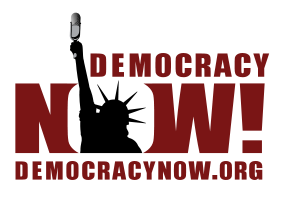Counter-Revolution of 1776

Counter-Revolution of 1776: Was U.S. Independence War a Conservative Revolt in Favor of Slavery?
 As the United States prepares to celebrate Independence Day, we look at why July 4 is not a cause for celebration for all. For Native Americans, it may be a bitter reminder of colonialism, which brought fatal diseases, cultural hegemony and genocide. Neither did the new republic’s promise of “life, liberty and the pursuit of happiness” extend to African Americans. The colonists who declared their freedom from England did not share their newly founded liberation with the millions of Africans they had captured and forced into slavery. We speak with historian Gerald Horne, who argues the so-called Revolutionary War was actually a conservative effort by American colonists to protect their system of slavery. He is the author of two new books: “The Counter-Revolution of 1776: Slave Resistance and the Origins of the United States of America” and “Race to Revolution: The U.S. and Cuba During Slavery and Jim Crow.” Horne is professor of history and African American studies at the University of Houston.
As the United States prepares to celebrate Independence Day, we look at why July 4 is not a cause for celebration for all. For Native Americans, it may be a bitter reminder of colonialism, which brought fatal diseases, cultural hegemony and genocide. Neither did the new republic’s promise of “life, liberty and the pursuit of happiness” extend to African Americans. The colonists who declared their freedom from England did not share their newly founded liberation with the millions of Africans they had captured and forced into slavery. We speak with historian Gerald Horne, who argues the so-called Revolutionary War was actually a conservative effort by American colonists to protect their system of slavery. He is the author of two new books: “The Counter-Revolution of 1776: Slave Resistance and the Origins of the United States of America” and “Race to Revolution: The U.S. and Cuba During Slavery and Jim Crow.” Horne is professor of history and African American studies at the University of Houston.
AMY GOODMAN: This is Democracy Now!, democracynow.org, The War and Peace Report. I’m Amy Goodman in Chicago with our next guest. Juan González is in New York.
JUAN GONZÁLEZ: Well, next weekend, the United States celebrates the Fourth of July, the day the American colonies declared their independence from England in 1776. While many Americans will hang flags, participate in parades and watch fireworks, Independence Day is not a cause for celebration for all. For Native Americans, it is yet another bitter reminder of colonialism, which brought fatal diseases, cultural hegemony and full-out genocide. Neither did the new republic’s promise of life, liberty and the pursuit of happiness extend to African Americans. As our next guest notes, the white colonists who declared their freedom from the crown did not share their newly founded liberation with the millions of Africans they had captured and forced into slavery.
AMY GOODMAN: Professor Gerald Horne argues that the so-called Revolutionary War was actually a counterrevolution, in part, not a progressive step forward for humanity, but a conservative effort by American colonialists to protect their system of slavery.
For more, Professor Horne joins us here in our Chicago studio. He’s the author of two new books: The Counter-Revolution of 1776: Slave Resistance and the Origins of the United States of America and another new book, just out, Race to Revolution: The U.S. and Cuba During Slavery and Jim Crow. Professor Horne teaches history and African American studies at the University of Houston.
Welcome to Democracy Now! It’s great to have you with us. So, as we move into this Independence Day week, what should we understand about the founding of the United States?
GERALD HORNE: We should understand that July 4th, 1776, in many ways, represents a counterrevolution. That is to say that what helped to prompt July 4th, 1776, was the perception amongst European settlers on the North American mainland that London was moving rapidly towards abolition. This perception was prompted by Somerset’s case, a case decided in London in June 1772 which seemed to suggest that abolition, which not only was going to be ratified in London itself, was going to cross the Atlantic and basically sweep through the mainland, thereby jeopardizing numerous fortunes, not only based upon slavery, but the slave trade. That’s the short answer.
http://www.democracynow.org/2014/6/27/counter_revolution_of_1776_was_us

